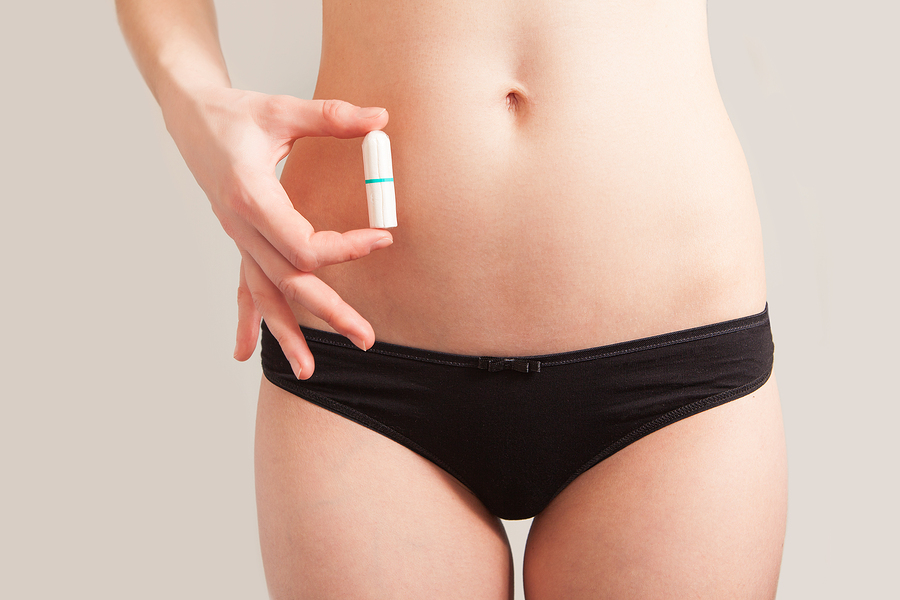UPDATE: I’ve been asked on my Facebook page many times for alternatives and safer options.
Now I personally would not put silicone in my body every month (like Diva cups) Period (no pun intended) I have people asking me why I wouldn’t put silicone inside of me and can only say I made a video on this page about how I had implants (with silicone) that almost killed me. So that’s one reason.. and here’s another reason those “moon cups” aren’t recommend.
Now, I’m not a huge fan of organic tampons, but would recommend them over silicone cups. But there’s only one thing I really like that’s been used since the 17th century and is most comfortable to me (in fact you have to be careful as you might forget it’s in there) Look, I sell no products and never have, but can give you an Amazon link for the best product and only thing I use which are locally harvested natural sea sponges. Oh, and organic pads would be alright too and definitely best for overnights (for me anyway)
Now on to the article:
Cancer Causing Tampons
Glyphosate, a widely popular herbicide that has been linked to cancer by the World Health Organization’s cancer research arm, was detected in 85 percent of cotton hygiene products tested in a preliminary study from researchers at the University of La Plata in Argentina.
Sixty-two percent of the samples also tested positive for AMPA (or aminomethylphosphonic acid), a derivative of glyphosate.

According to Revolution News, the samples—which included gauze, swabs, wipes and feminine care products such as tampons and sanitary pads, were purchased from local supermarkets and pharmacies in the La Plata area.
The findings were presented last week at the third national congress of Doctors of Fumigated Towns in Buenos Aires.
“In terms of concentrations, what we saw is that in raw cotton AMPA dominates (39 parts per billion, or PPB, and 13 PPB of glyphosate), while the gauze is absent of AMPA, but contained glyphosate at 17 PPB,” said Dr. Marino.
Dr. Medardo Avila Vazquez, president of the congress, said (via RT.com) that the result of this research is “very serious when you use cotton or gauze to heal wounds or for personal hygiene uses, thinking they are sterilized products, and the results show that they are contaminated with a probably carcinogenic substance.”
“Most of the cotton production in the country is GM [genetically modified] cotton that is resistant to glyphosate. It is sprayed when the bud is open and the glyphosate is condensed and goes straight into the product.”
Glyphosate is the key ingredient in biotech giant Monsanto’s Roundup, the most popular weedkiller in the U.S. “Roundup Ready” cotton, soy, and corn crops have been genetically modified to withstand application of the herbicide.
In fact farmers sprayed 2.6 billion pounds of Monsanto’s glyphosate herbicide on U.S. agricultural land between 1992 and 2012, according to the U.S. Geological Survey.
In 2015, the U.S. Department of Agriculture found that adoption of genetically modified-varieties, including those with herbicide tolerance, insect resistance, or stacked traits, accounted for 94 percent of the nation’s cotton acreage.
The graph below from the U.S. Department of Agriculture indicates an upward trend on the country’s adoption of genetically modified soybean, corn, and cotton.
Monsanto maintains the safety of their product, citing its approval from the U.S. Environmental Protection Agency, which “classified the carcinogenicity potential of glyphosate as Category E: ‘evidence of non-carcinogenicity for humans.’”
Monsanto is also demanding a retraction of the World Health Organization’s classification of glyphosate as a possible carcinogen.
This is not the first time that the chemical makeup of feminine care products has been put under a lens. A 2013 report by Women’s Voices for the Earth detailed how the feminine care industry sells products containing unregulated and potentially harmful chemicals, including preservatives, pesticides, fragrances and dyes.
 ABOUT THE FOUNDER OF HEALTH NUT NEWS
ABOUT THE FOUNDER OF HEALTH NUT NEWSP.S. You can subscribe to her Youtube Channel for breaking news,giveaways and more













